toIf you want to lose weight, you need to eat less and exercise more. This creates a calorie deficit that forces your body to burn fat for fuel. There are no ways around this – you must reduce your calorie intake and increase your calorie expenditure. Period!
But, as simple as this process looks on paper, it’s much harder in reality.
Hunger, cravings, lack of energy, and low levels of motivation and willpower can all put the brakes on weight loss. With so many barriers to overcome, it’s no wonder that a lot of dieters fail to reach their weight loss target or regain the weight they worked so hard to lose soon afterward.
Here are 20 tips that will help you lose weight more easily and then keep it off too. These tips aren’t designed to replace eating less and exercising more. Instead, they are there to maximize your progress while minimizing the difficulties you will face on your weight loss journey.
With 20 different tips to choose from, you should be able to use at least a few each day to help you lose weight faster and more easily.
- 1 – Get more sleep
- 2 – Move more, sit less
- 3 – Drink more water
- 4 – Eat more protein
- 5 – Start your day with a nutritious breakfast
- 6 – Pump iron
- 7 – Eat from smaller plates
- 8 – Eat mindfully
- 9 – Make your own meals
- 10 – Avoid fad diets
- 11 – Plan and make your healthy meals in advance
- 12 – Never go grocery shopping when you are hungry
- 13 – Make your home a junk food-free zone
- 14 – Don’t drink your calories
- 15 – Fill up on high-fiber foods
- 16 – Carry healthy snacks with you wherever you go
- 17 – Identify and avoid your overeating triggers
- 18 – If you eat out, order your meal in advance
- 19 – Eat the majority of your daily carbs after your workout
- 20 – Record your progress
- Wrapping up
1 – Get more sleep
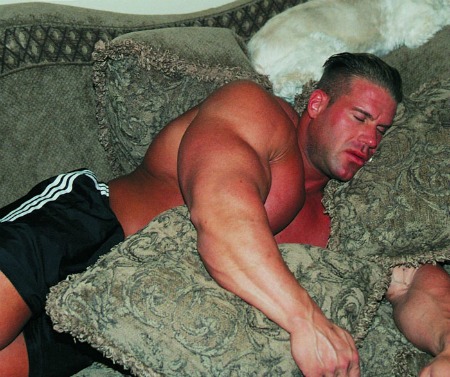
Not getting enough sleep can have a big impact on your weight loss progress. If you are sleep deprived, you are much more likely to crave sugar and carbs, and you won’t have the energy you need to work out regularly either. Lack of sleep also increases cortisol levels and decreases human growth hormone and testosterone production, all of which will interfere with fat burning.
Try to get 7-9 hours of sleep every night, and not just on weekends. Do this by going to bed earlier, avoiding too much screen time before going to bed, cutting back on caffeine, and going to bed and getting up at the same time every day.
2 – Move more, sit less

Even if you work out 3-5 times a week, you may still be too sedentary, especially if you have an office job. The less active you are, the fewer calories you’ll burn per day, and the more slowly you’ll lose weight.
Look for ways to add more physical activity to your day. Go for a walk after dinner, play sports with your kids, do some chores around the house, do some gardening – anything that gets you up off your butt and moving your body will help you lose weight faster.
3 – Drink more water

Water is arguably the most important part of your diet. While you can go for several weeks without food, just a few days without water will kill you! Drinking water can also help you lose weight faster. Despite being calorie-free, water is filling. Also, a lot of people slake their thirst for water with high-sugar sodas and juices, which will interfere with weight loss.
Drink about 64 fluid ounces of water a day to prevent hunger and ensure you are properly hydrated. Drinking 16 fluid ounces 20-30 minutes before a meal may also help prevent overeating.
4 – Eat more protein
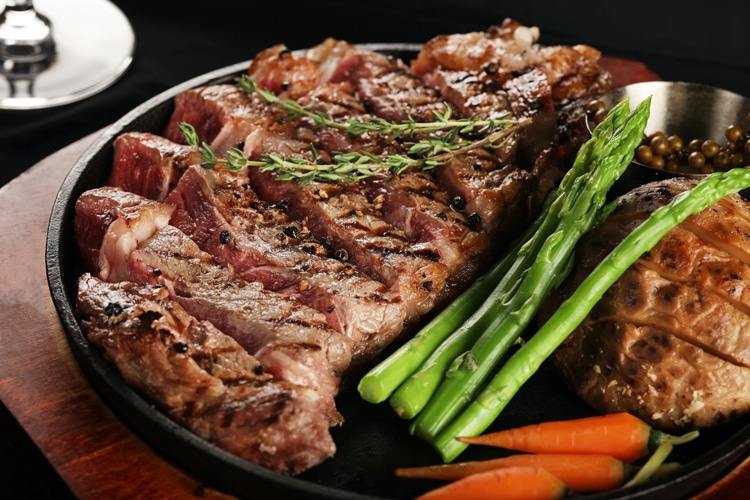
All of the food groups are important, but consuming more protein could help you lose weight faster. Protein has a high thermal effect, which means it has a significant impact on your metabolic rate, which is the number of calories your body burns per day at rest.
Maximize this by eating protein at every meal and snacking on high-protein foods too.
As an added benefit, protein is more filling than carbs and doesn’t cause your blood glucose to rise and fall as dramatically as carbohydrates can. Stable blood glucose levels can help you avoid hunger and cravings.
5 – Start your day with a nutritious breakfast
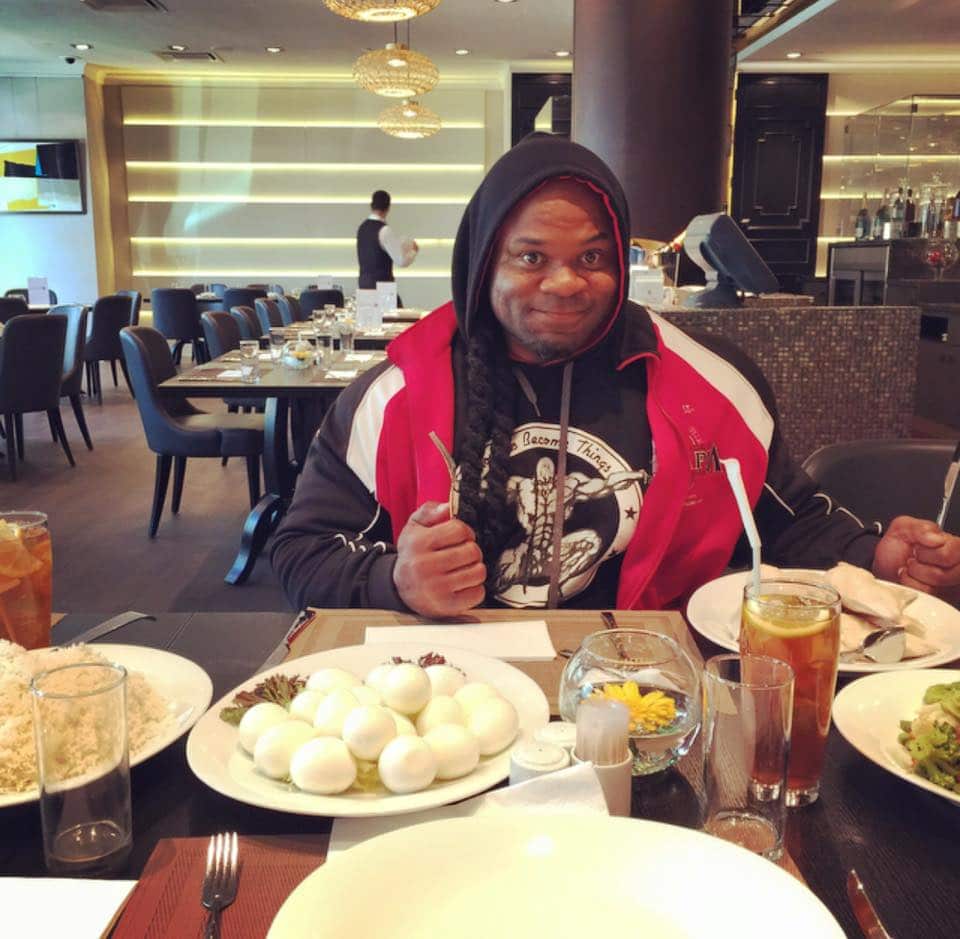
Skipping breakfast might seem like an easy way to eat fewer calories, but it doesn’t always work out that way. If you skip breakfast, you may start to feel hungry later in the morning and end up eating a junk food snack to hold you over until lunch.
Eating a nutritious breakfast will ward off mid-morning hunger and also give you the energy you need to power through the first part of your day.
This doesn’t mean you should chow down on a pastry or a bowl of sugary cereal. Instead, eat something unrefined such as oatmeal, wholewheat toast, eggs, or a high-protein homemade smoothie.
6 – Pump iron
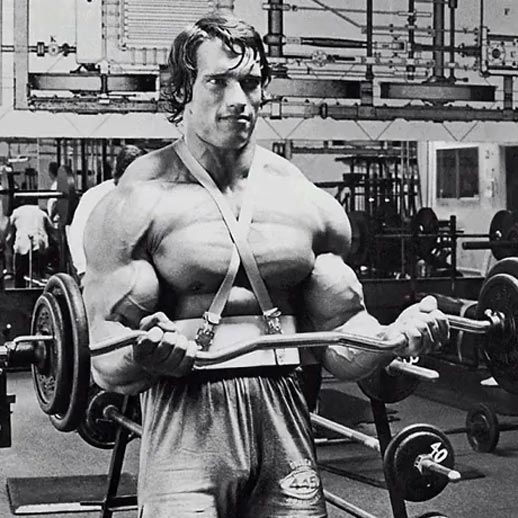
When it comes to exercise for weight loss, a lot of people focus exclusively on cardio. And while cardio can help you burn calories and fat, it only really works while you are doing it.
In contrast, lifting weights has a more long-term effect on weight loss by increasing your resting metabolic rate, so you burn more calories 24/7, and not just while you work out. Adding just a few pounds of muscle to your frame will have a big impact on the number of calories you burn each day.
In addition, strength training increases your insulin sensitivity more than cardio. That means more of the carbs you eat will end up in your muscles and liver, and not in your fat stores.
7 – Eat from smaller plates
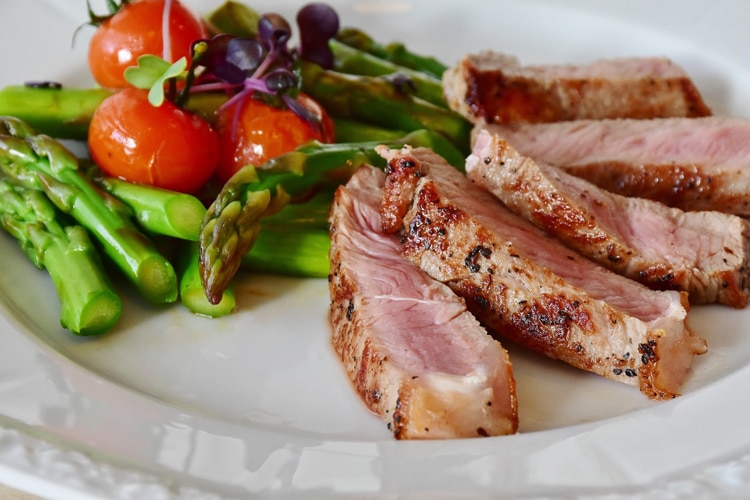
Losing weight invariably means eating less food. Looking down at a plate that’s only half full can make you feel hungry and wanting to eat more.
Avoid this problem by putting your meals on smaller plates. This makes your meal look bigger than it really is, which will fool your brain into thinking you are eating a regular-sized meal. Less hunger will make your diet easier to stick to.
8 – Eat mindfully

How many times have you sat down in front of the TV with a big bag of chips or candy only to eat the whole pack without realizing it? This is called eating mindlessly and is a leading cause of weight gain.
Avoid this problem by eating more mindfully. Don’t eat while distracted, and make sure you savor every bite of food you eat. Chew it, enjoy it, and wait a moment before taking your next bite. Eating mindfully means you are less likely to eat more than you need, and you’ll also enjoy your meal more.
Increase mindfulness by only eating when you are sat at a dining table – no more eating at your desk, in your car, or in front of the TV.
9 – Make your own meals

One of the best ways to control your food intake for weight loss is to make more of your own meals. Takeout foods and restaurant meals are invariably bigger than you can eat for weight loss and may contain ingredients that lead to weight gain.
Making more of your own meals means you have complete control over how much and what you eat.
10 – Avoid fad diets
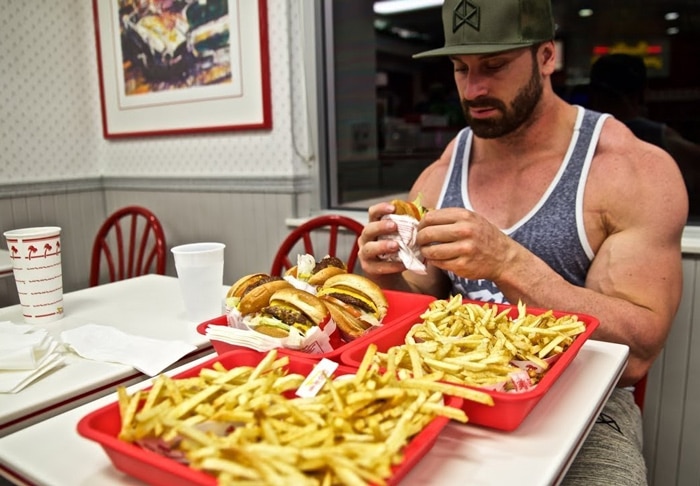
Fad diets promise fast weight loss, but they rarely deliver. You might lose weight initially, but most fad diets are unsustainable and lead to severe hunger and cravings. Then, when you quit your diet, you end up overeating and regain any weight you have just lost. Eat enough, and you’ll gain more than you lost, and end up dieting yourself fatter! This is called yoyo dieting.
Extreme diets don’t work, so don’t even bother starting one. Instead, adopt a healthy eating regimen that you can see yourself maintaining for the foreseeable future, and not just for a few days or weeks. You won’t lose weight as fast, but you are much more likely to reach your target weight, and then keep it off afterward.
11 – Plan and make your healthy meals in advance
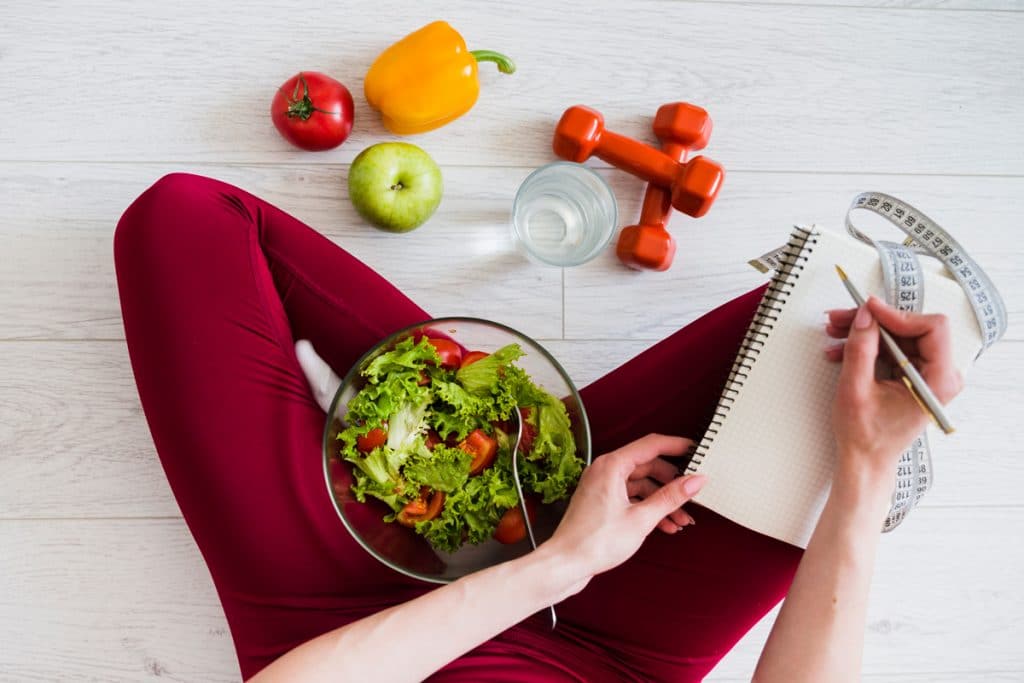
It’s harder to eat healthily when you are hungry and tired, or you are running short on time. You might have meant to make something nutritious to eat, but then ended up ordering a pizza simply because you got home feeling too tired to cook. Diet fail!
Avoid this problem by planning and cooking your healthy meals in advance. A lot of successful dieters batch-cook healthy meals over the weekend, so they have lots of healthy food to eat during the following week.
With plenty of healthy but convenient food available, you have one less excuse to break your diet.
12 – Never go grocery shopping when you are hungry
Grocery stores are seemingly designed to derail your diet! They are packed with high calorie, processed, convenient food options, which is the last thing you should eat if you want to lose weight.
If you are hungry, you are much more likely to buy these unhealthy and fattening foods as your willpower is weaker.
Avoid this problem by only shopping for food after you have eaten. Make a list of what you need and stick to it. Don’t add any unplanned treats!
13 – Make your home a junk food-free zone
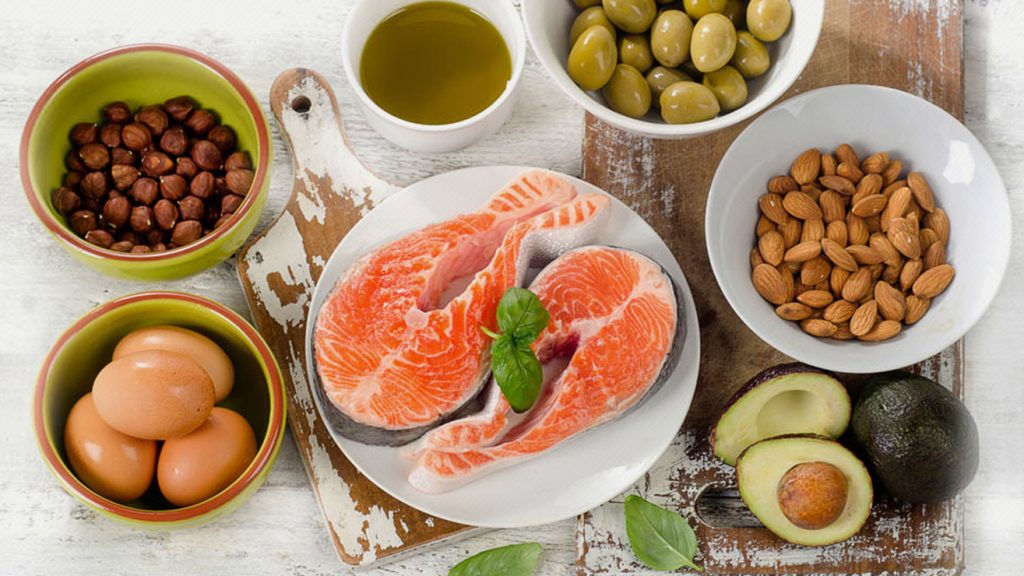
Having easy access to junk food is a sure-fire way to ruin your weight loss diet. You might be able to resist eating it for a day or even a week, but in a moment of weakness, you WILL eat it – it’s the dietary law of possession!
Avoid this problem by making your home a junk food-free zone. That way, if your willpower starts to weaken, you won’t have the means or the opportunity to break your diet.
14 – Don’t drink your calories
High-sugar beverages like blended coffee drinks, soda, store-bought smoothies, and fruit juices can add a lot of calories to your daily intake without filling you up. By the time you factor in food too, it’s easy to see how drinking high-calorie beverages can contribute to weight gain and make weight loss much harder.
Avoid drinking your calories so you can a) eat more food and b) lower your sugar intake, both of which will help you lose weight faster and more easily.
The occasional soda is fine, but if you are gulping down a 32-ounce mega-cup every day, you’ll never lose weight. Also, alcohol won’t help you lose weight either. As well as containing calories, it can lower your inhibitions, and reduce your willpower. If you are serious about weight loss, go easy on the booze.
15 – Fill up on high-fiber foods

High fiber foods are very filling but are much lower in calories than processed, low fiber foods. Use this to your advantage by eating more high fiber foods. Good examples include:
- Oatmeal
- Brown and wild rice
- Vegetables
- Fruit
- Wholemeal bread
High fiber foods are good for your digestive health and can help lower your blood glucose and “bad” LDL cholesterol levels.
16 – Carry healthy snacks with you wherever you go
Hunger is every dieter’s weight-loss nemesis. Hunger can steal your motivation and willpower and leave you reaching for a fattening snack or meal when you should be eating healthily.
Avoid this problem by always carrying healthy snacks with you. That way, if hunger strikes, you won’t need to buy a candy bar or donut to satisfy it. Good options include dried fruit, veggie sticks, tuna pouches, hardboiled eggs, low-carb protein bars, nuts and seeds, or jerky.
17 – Identify and avoid your overeating triggers

If you eat when you aren’t hungry, you run the risk of derailing your diet. A lot of people eat when they are sad, tired, or stressed. Others eat more than they should when they drink alcohol, or when they are with specific groups of friends.
Make a note of the times you feel tempted to overeat or break your diet and identify any triggers that cause this behavior. From then on, try and avoid these triggers, so it’s easier to stay true to your diet.
18 – If you eat out, order your meal in advance
Eating in restaurants is one of life’s pleasures, but it can make it tough to stick to your diet. You might set out with all the right intentions, but then, after looking at the menu, feel your willpower crumble and end up falling off the healthy eating wagon. This will be even more likely if your fellow diners are ordering huge portions of fattening foods.
Avoid this problem by ordering your meal BEFORE you go to your chosen eatery. Most restaurants have online menus, so this should not present too much of a problem. Once you are at the restaurant, also avoid filling up on complimentary breadsticks or ruining your healthy meal with an unplanned dessert.
Finally, sit next to the healthiest eater in your group. Peer pressure is an excellent way to keep you on the nutritional straight and narrow.
19 – Eat the majority of your daily carbs after your workout

Carbs are a fast-acting source of energy. But, when you are sedentary, they are more likely to be converted to and stored as fat. After exercise, carbs are preferentially diverted to your liver and muscles and away from your fat stores. This is because exercise depletes your onboard carb stores and increases your insulin sensitivity.
Low-carb diets can work, but they can also be tough as they often cause low energy levels and cravings. Harness the power of carbs by eating most of yours after your workout. As well are avoiding weight gain, this will also speed up your recovery.
20 – Record your progress

Done right, weight loss should be a slow process. Expect to lose 1-2 pounds per week. That way, you won’t need to starve yourself, and you’ll find it easier to stick to your diet for as long as it takes to reach your target weight.
However, such slow progress is not very motivating, and you might feel like you are wasting your time.
Avoid this problem by recording your progress so you can see just how far you have come in the weeks and months since you started your diet. Options include:
- Progress photos
- Weekly weigh-ins
- Take measurements of your hips, thighs, and waist
- Body composition measurements, e.g., skinfold or bioelectrical impedance
- The hole on your belt
However you do it, measure and record your progress and take pride in your achievements.
Wrapping up
Losing weight is not easy, but it’s not impossible either. So many dieters have lost weight and kept it off, and you can do it too. Make things as easy as possible by putting these tips into action. Each one is tried and tested. While they’ll only have a small impact on your progress, every little bit helps.
Use them all! And remember, losing weight and keeping it off is a long-term project, so whatever diet you choose, make sure it’s one you can live with. Not just for a week or a month, but for the foreseeable future.


